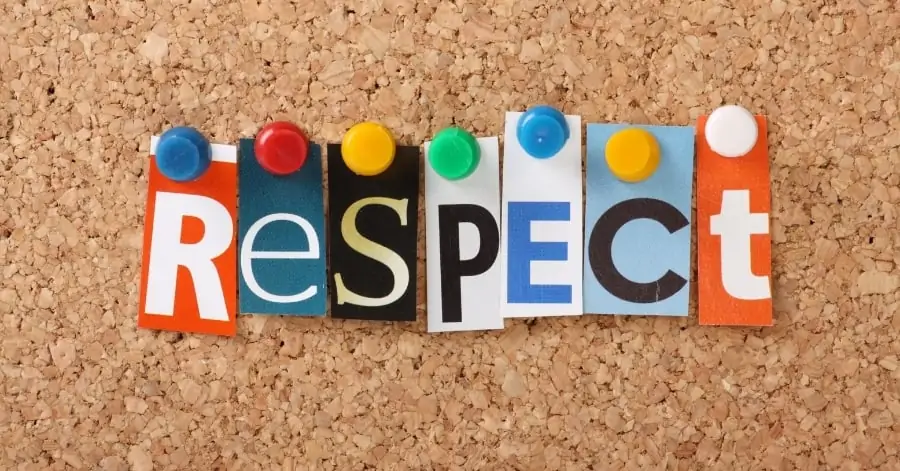Should Parents Respect Their Children?

This post may contain affiliate links. If you buy through the link, I may earn a commission. Learn More.
The definition of respect can be summed up as a feeling of friendship, regard, and/or admiration. Respect as a practice shows others that they matter to you.
Whether or not a parent should show respect to their children isn’t really a matter of if but how.
*FYI, some of the links in this article about should parents respect their children may be affiliate links. If you click and make a purchase, we may get a commission (at no extra cost to you). For more info, please see our disclaimer.
Should Parents Respect Their Children?
Parents should show respect to their kids. Showing your children, you respect them shows them that they can trust your love for them is real and true. Respect should be thought of as the foundation of all positive human interactions. Without respect, there can be no friendship, kindness, or love.
How to Show Respect to Children
Some people believe respect must be earned. They think children must show they are worthy of being regarded in high esteem.
I don’t think that kind of cynicism is helpful when it comes to raising kids. Children should feel loved by their parents not because they earned that love but because it’s innate.
If it’s true that respect is a building block for other emotions, children who are told they have to earn respect may feel they have to earn your love as well.
1. Encourage Decision-Making Skills
Give your children the opportunity to have input on issues both large and small. This can start as young as you like. Let children decide which socks to wear, which books to read, or which stuffed toy to snuggle with.
As they grow, give them the option to choose meals from time-to-time or let them decide what movie your family watches on movie night.
Listening to your child’s input is one part of the equation. The second is following through.
One morning, when my son was four, I told him he could choose his clothing for the day at nursery school. He emerged from his bedroom with a shrunken white t-shirt, neon green shorts, four neck-ties, and a stocking cap.
I had a tough choice then: respect his wishes or backtrack on my promise to let him dress himself. Of course, I did what any parent would do: I took a picture so that I could remember the moment forever. I then told him he could keep the shorts but would have to rethink some of these other choices.
2. Allow Children to Make Mistakes
Children mess up. They do this because they are human. We all make mistakes that hopefully teach us valuable lessons. When your children make these mistakes, and they will, try to use these slip-ups as teachable moments. Accept mistakes with grace so they can feel that your love and respect is unconditional.
Just yesterday, my daughter frantically called me because she had taken her dance bag with her but had neglected to include the tights and leotard required for her ballet class.
I had reminded her to check her bag before she left, but the mistake had been made. I had to drop everything I was doing to drive across the city and deliver her clothing. I explained to her that it’s okay to forget things sometimes.
What’s not okay is to keep doing it. Therefore, she needs to establish a system to make sure she has everything required before her dad drops her off at the dance studio. There was no yelling, no harsh words, and no punishment for a simple mistake like that.
3. Teach Body Autonomy
From a very young age, children need to learn that they are in control of their own bodies. I told my children ad nauseam that no one is allowed to touch their bodies if they don’t want them to unless it’s medically necessary and/or an emergency situation.
These lessons do not have to be just about sexually inappropriate touching. Kids need to know they don’t have to give anyone a hug, a kiss, or a fist bump if they don’t want to.
They also need to know if someone says “no” or “stop,” they must immediately stop even if that person is laughing or seems to be enjoying themselves. We call it the “tickle-stop.” I might be tickling my daughter, and she’ll laughingly say, “Stop it!” My immediate reaction is to stop because she asked me to even as she was giggling.
4. Set a Respectful Example
Children respond to what they see. If you feel as though your children aren’t respecting you, then it could be that you’re not setting the right example. Make sure they see you interact with others in a respectful way. Most importantly, make sure you treat them the way you wish to be treated.
It’s not a pleasant thought, but many parents treat their children with great amounts of disrespect. They then feel outraged when the children return that behavior. The same is true for parents who treat people outside of the family in disrespectful ways.
Whether it’s a server at a restaurant, a next-door neighbor, or a stranger in an online forum, if your children see disrespectful acts, they are bound to return them.
Children Do Deserve Respect
Children deserve respect as much as their parents. It can be argued that the most important part of raising emotionally healthy children is showing them respect and kindness.
How do you show your children you respect them? Tell us in the comments!
Have You Read These Yet?
- Should Parents Have to Earn Respect From Their Children?
- Should Parents Be Strict or Lenient?
- Should Parents Force Their Child to Go to College?
